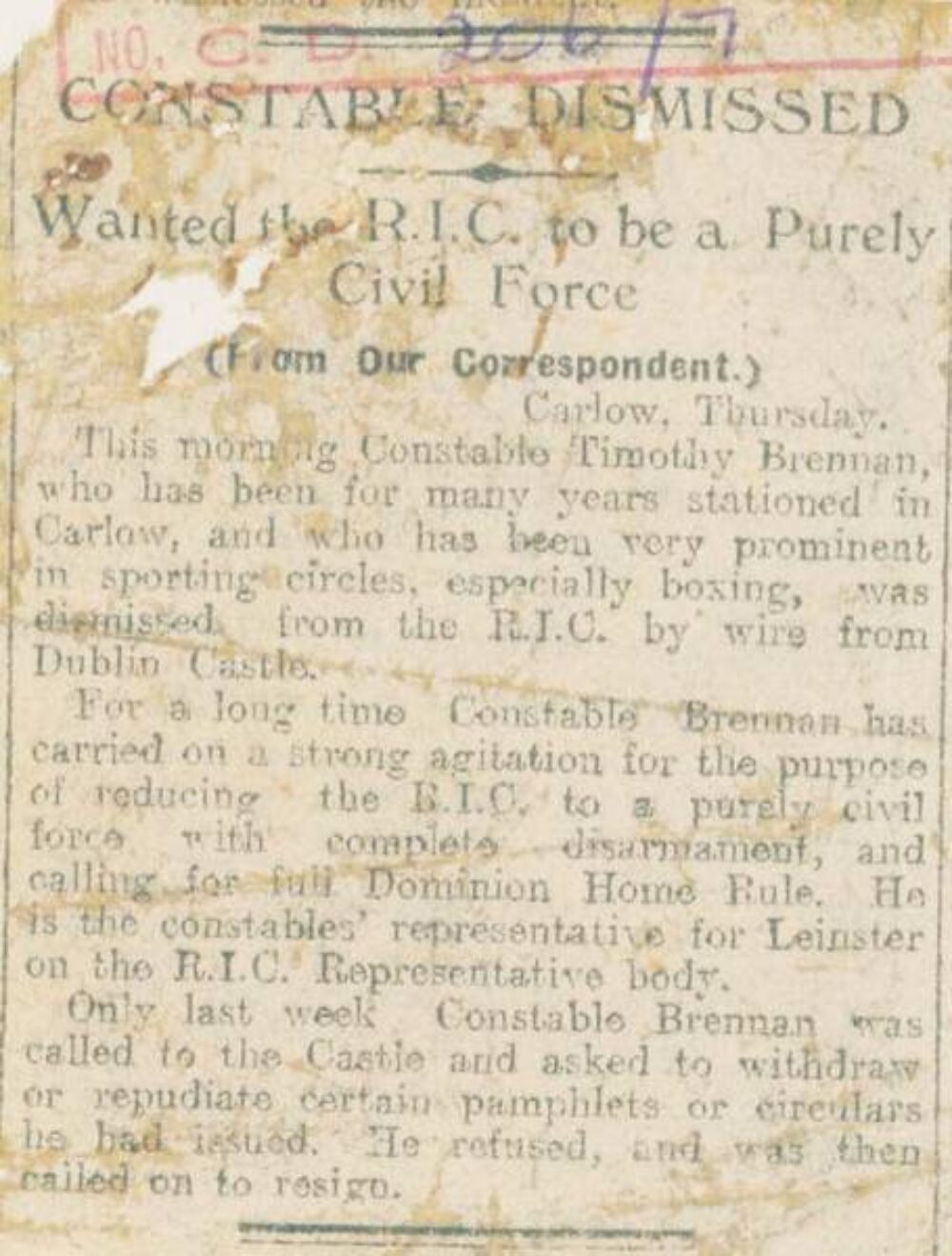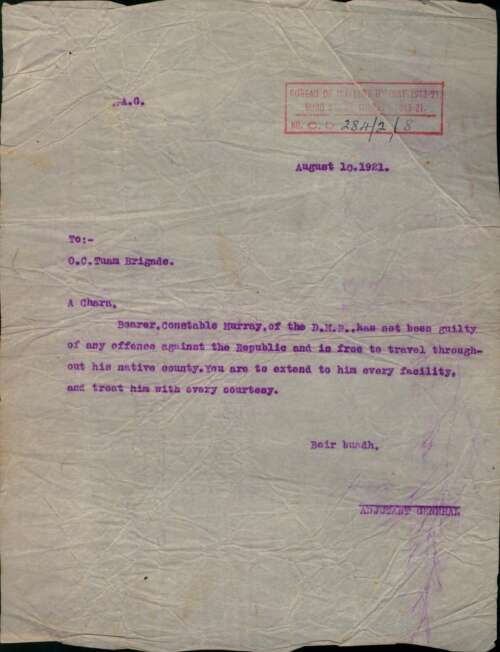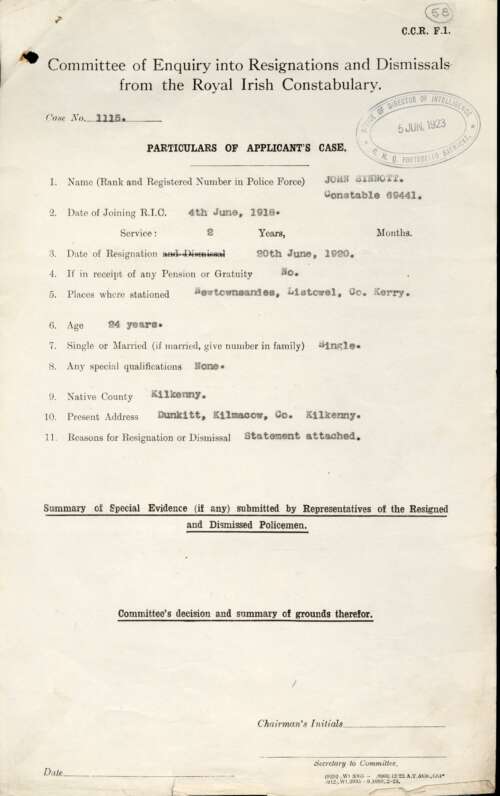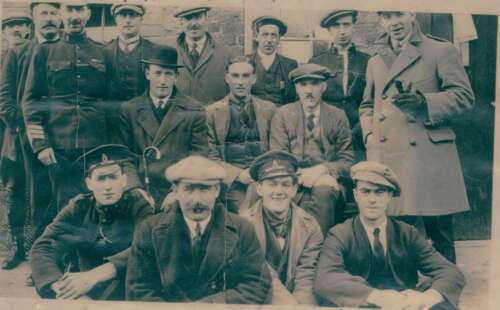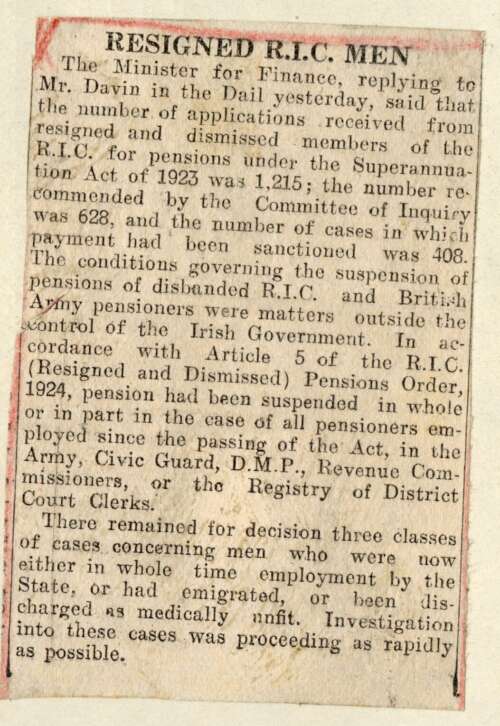This exhibition shines a light on material held in the M.I.P.R. collection (Military Intelligence and Press Analysis - Civil War) and Colonel Thomas Gay’s private collection (view a short biography of Colonel Gay here) connected to the subject of R.I.C. dismissals and resignations during the revolutionary period. The assembled documentation adds a layer of complexity to perceptions of loyalty, patriotism and participation in consideration of the War of Independence years.
The Committee established to enquire into resignations and dismissals from the Royal Irish Constabulary (R.I.C.) was appointed on the 28th November 1922 by Mr Kevin O’Higgins T.D. Minister of Home Affairs and consisted of two groups of nominees. Mr Batt O’Connor (Chairman) Mr W. McCracken, Mr W. Doolin and Commandant General T. Cullen were nominated by the Government while Mr M. J. Lyons, Mr M. O’Mahony and Mr J.M. McLaughlin (Secretary) were nominated by the resigned and dismissed policemen. The position held by a Military representative changed hands a number of times with Commandant General T. Cullen resigning on 7th of February, 1923, and his replacement, Colonel Commandant F. Saurin resigning on 28th of March 1923. Saurin was replaced by Captain T. Gay on the 28th of March 1923 who served on the committee until proceedings concluded.
The appointed committee were required to “enquire into the cases of men who resigned or were dismissed from the Royal Irish Constabulary, during the period 21st January, 1919, to 11th July, 1921, and to report to the government those cases in which it considers that the resignations and dismissals were caused by the national sympathies of the resigned and dismissed men”.
The "Interim Report" of the committee dated 20th April 1923 (view here) held in the M.I.P.R. collection provides an insight into the inner workings of the committee, and the workload involved. The secretary reported that 41 meetings of the Committee were held and 1094 applications were received, including applications from the United States of America, Australia, Canada and South Africa. Further, 414 cases were disallowed and 492 cases approved.
The M.I.P.R. collection includes application forms (Form C.C.R. F.1.) submitted by one hundred applicants (view index to claimants here). Given the genesis of the M.I.P.R. collection (Department of Intelligence), the 100 cases could possibly represent the cases reviewed by the military representatives on the committee. It should be noted that the private collection of committee member, Colonel Thomas Gay contains application forms (Form C.C.R. F.1.) and related correspondence regarding a number of cases. MIPR_03_13 also contains correspondence between Intelligence and the committee on various cases, minutes of meetings held (incomplete set) and related newspaper cuttings on the subject of R.I.C. resignations and dismissals.
The one hundred application forms contained in the M.I.P.R. collection are interesting in their own right (view the application forms here] and detail a wide range of reasons why men of the R.I.C. resigned or were dismissed. In almost all cases, the resignation revolved around sympathy, which had been expressed in various ways, with the national cause. In the very few cases where dismissal is cited, the reason given was the doubted loyalty of the individual to the R.I.C.

